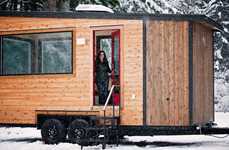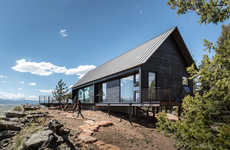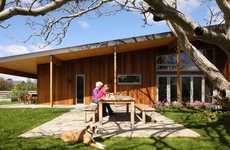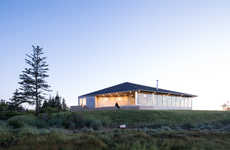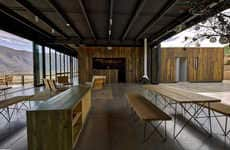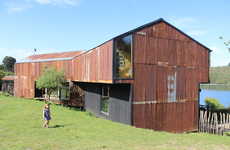
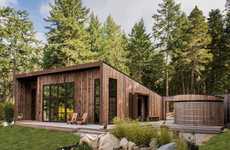
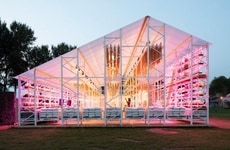

Brands are sustainably revamping the use of space in barns
Trend - Many eco-conscious brands are taking a sustainable approach to reconstructing traditional barns that typically house livestock and equipment. With elevated spaces that use reclaimed materials and energy saving windows, these repurposed barns serve as hybrid open-concept spaces.
Insight - Consumers have become more informed about how their consumption habits can have adverse impacts on the environment, which results in feelings of guilt when they purchase goods from companies with high carbon footprints. These eco-conscious consumers often look to avoid feelings of anxiety about the future of climate change through vetting brands that they buy from.
Insight - Consumers have become more informed about how their consumption habits can have adverse impacts on the environment, which results in feelings of guilt when they purchase goods from companies with high carbon footprints. These eco-conscious consumers often look to avoid feelings of anxiety about the future of climate change through vetting brands that they buy from.
Workshop Question - How can your brand shift an area in your business to promote sustainability?
Trend Themes
1. Sustainability - Eco-conscious brands are taking a sustainable approach to repurposing traditional barns and other buildings using reclaimed and recycled materials, energy saving technologies and sustainable water collection systems.
2. Zero-waste - Movement towards zero-waste practices in construction and food handling is leading to innovative methods of using discarded materials and reducing food waste in creating innovative structures and menus.
3. Eco-tourism - Sustainable travel retreats with unique design elements such as bold colors, spacious open-concept living areas and wall-to-ceiling windows are being created, offering a one-of-a-kind travel experiences for the environmentally conscious consumer.
Industry Implications
1. Construction and Architecture - There is an opportunity for construction companies and architects to develop zero-waste building practices and utilizing recycled materials and energy-saving technologies for both residential and commercial spaces.
2. Hospitality - With the rise of sustainable travel and environmentally conscious consumers, hospitality businesses have the opportunity to develop eco-friendly travel opportunities, such as travel retreats that utilize sustainable design elements and offer unique experiences.
3. Food and Beverage Industry - The food and beverage industry has the opportunity to develop menus and cooking practices that reduce food waste and promote zero-waste principles, while also instilling values of ethical consumption to environmentally conscious consumers who prioritize sustainable practices in their consumption habits.
4 Featured, 35 Examples:
300,271 Total Clicks
Date Range:
Jan 18 — May 19
Trending:
V. Hot
Consumer Insight Topics:









